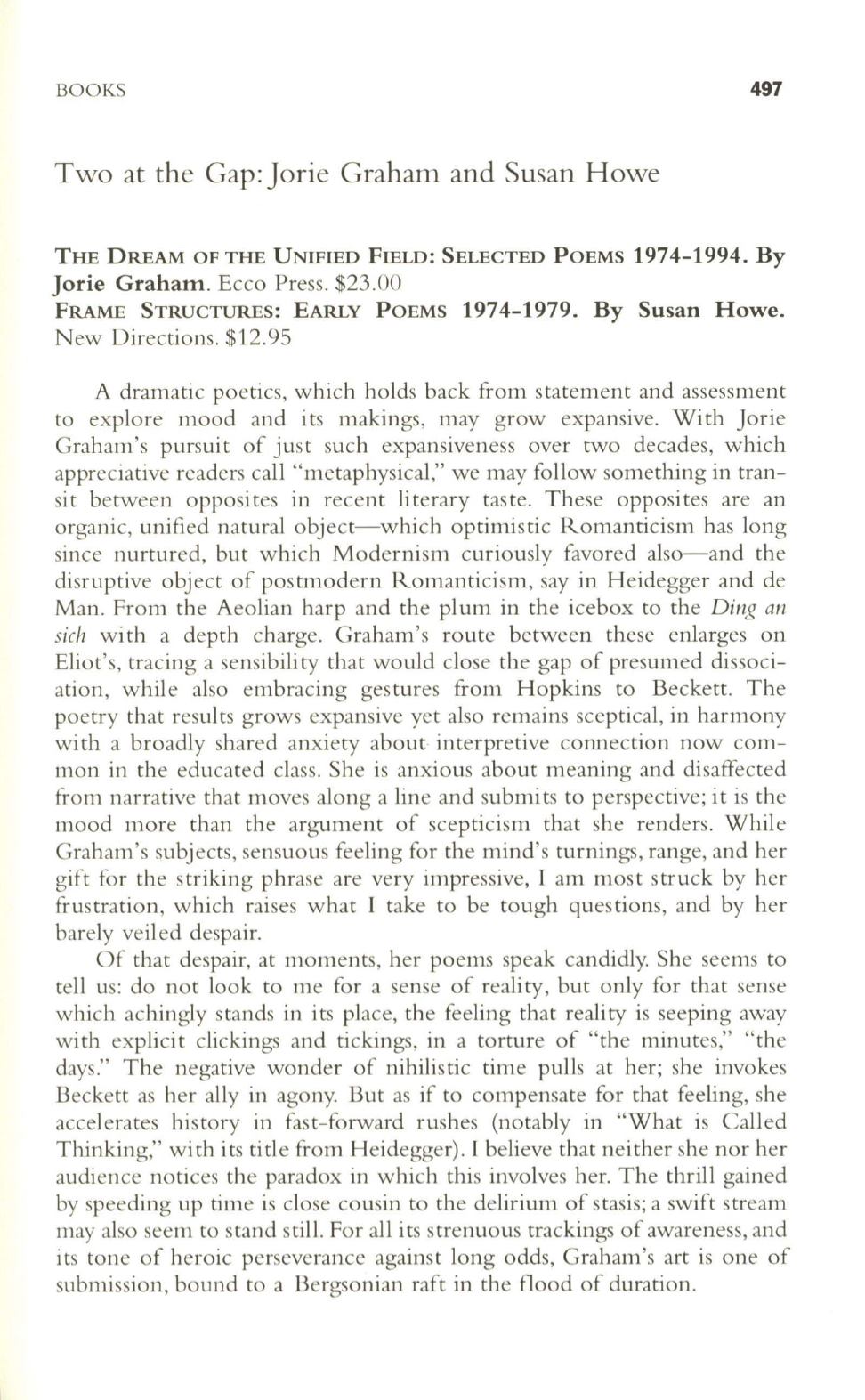
BOOKS
497
Two at the Gap: Jorie Graham and Susan Howe
THE DREAM OF THE UNIFIED FIELD: SELECTED POEMS
1974-1994. By
Jorie
Graham.
Ecco Press.
$23.00
FRAME STRUCTURES:
EARLY
POEMS
1974-1979. By
Susan
Howe.
New Directions.
$12.95
A dramatic poetics, which holds back from statement and assessment
to explore mood and its makings, may grow expansive. With Jorie
Graham's pursuit of just such expansiveness over two decades, which
appreciative readers call "metaphysical," we may follow something in tran–
si t between opposi tes in recent Ii terary tas teo These opposi tes are an
organic, unified natural object-which optimistic Romanticism has long
since nurtured, but which Modernism curiously favored also-and the
disruptive object of postmodern Romanticism, say in Heidegger and de
Man. From the Aeolian harp and the plum in the icebox to the
Ding an
sich
wi th a depth charge. Graham's route between these enlarges on
Eliot's, tracing a sensibility that would close the gap of presumed dissoci–
ation, while also embracing gestures from Hopkins to Beckett. The
poetry that results grows expansive yet also remains sceptical, in harmony
with a broadly shared anxiety about interpretive connection now com–
mon in the educated class. She is anxious about meaning and disaffected
from narrative that moves along a line and submits to perspective; it is the
mood more than the argument of scepticism that she renders. While
Graham's subjects, sensuous feeling for the mind's turnings, range, and her
gift for the striking phrase are very impressive, I am most struck by her
frustration, which raises what I take to be tough questions, and by her
barely veiled despair.
Of that despair, at moments, her poems speak candidly. She seems to
tell us: do not look to me for a sense of reality, but only for that sense
which achingly stands in its place, the feeling that reality is seeping away
wi th explici t clickings and tickings, in a torture of "the minutes," "the
days." The negative wonder of nihilistic time pulls at her; she invokes
Beckett as her ally in agony. But as if to compensate for that feeling, she
accelerates history in fast-forward rushes (notably in "What is Called
Thinking," with its title from Heidegger). I believe that neither she nor her
audience notices the paradox in which this involves her. The thrill gained
by speeding up time is close cousin to the delirium of stasis; a swift stream
may also seem to stand still. For all its strenuous trackings of awareness, and
its tone of heroic perseverance against long odds, Graham's art is one of
submission, bound to a Bergsonian raft in the flood of duration.


